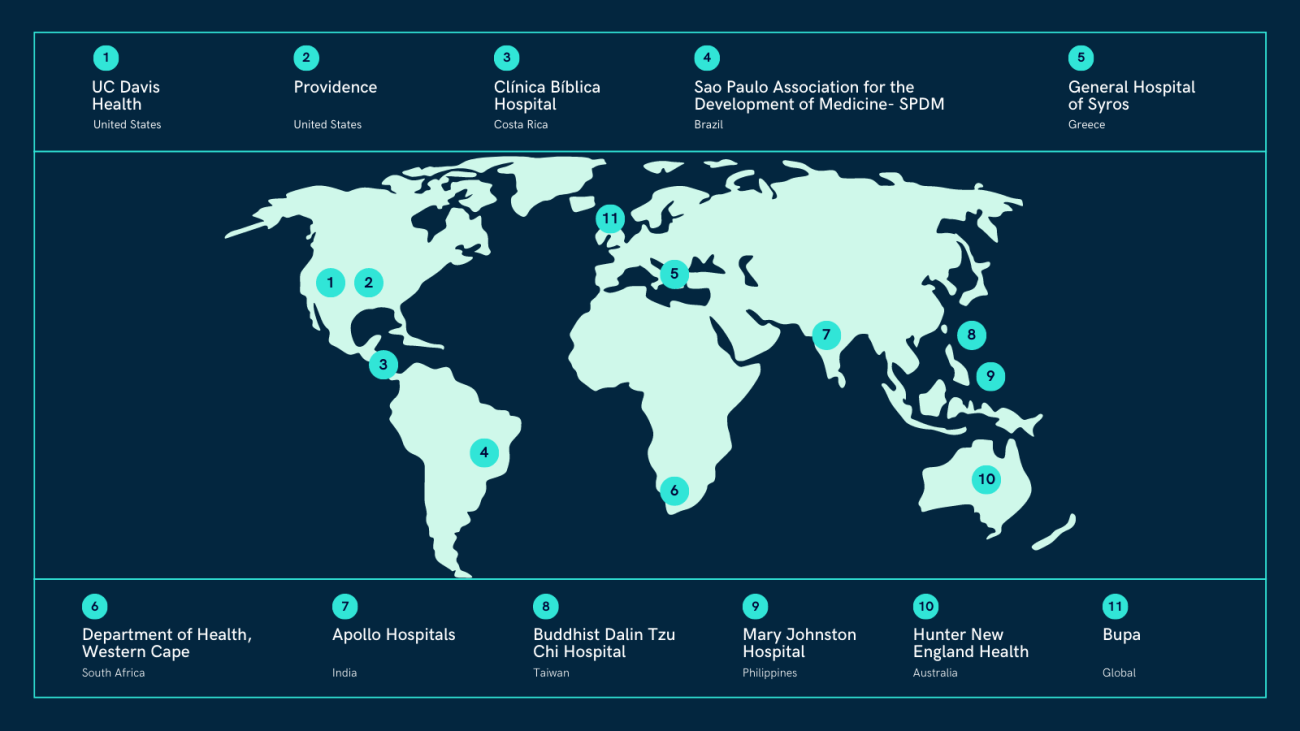How can the health care sector reduce its greenhouse gas (GHG) emissions and the environmental impact of its operations? Which are the best practices and solutions available for the sector? What are some common challenges the sector faces, and how are they addressed in different parts of the world?
Representatives from 11 organizations, which are members of Health Care Without Harm’s Global Green and Healthy Hospitals (GGHH) and Practice Greenhealth networks, convened in Pittsburgh, Pennsylvania on May 22 and 23 for the Global gathering for health care climate action. All of the organizations are participating in Race to Zero, the UN-backed campaign that rallies non-state actors to take action to halve global emissions by 2030 while working to center health equity and build resilience.
Organizations participating in the Global gathering
“It was an incredible opportunity for these leading organizations from the sector to come together to share and discuss their experiences, strategies and challenges in their efforts to achieve net zero. This type of collaboration and learning is essential to accelerate our collective work to transform the health care sector around the world,” explains Nick Thorp, Network Director, Global Green and Healthy Hospitals.
In the lead-up to the Global gathering, Health Care Without Harm and its partners organized a series of regional events in Latin America and Brazil, Europe, South East Asia, and the United States. These events brought together 98 hospitals and health care organizations from 20 countries, participating in Race to Zero.
“We are working with participants on a guidance document, which will incorporate the knowledge, experiences, and proven practices shared during these regional meetings into a framework. Once finalized, it will be shared with the global health care community,” explains Diana Picon Manyari, International climate director, Health Care Without Harm.
The guidance document will be refined in the following months through a review period with health care stakeholders identified throughout the world.
